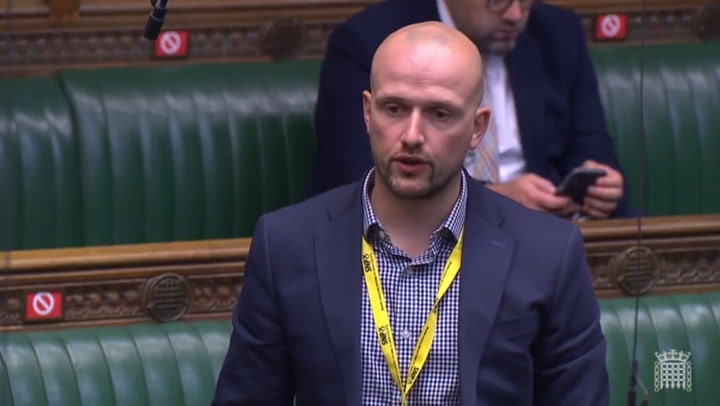
Shell is planning 330 job cuts from its UK oil and gas business, the majority in Aberdeen, as part of its global restructuring.
The losses, from the upstream segment, are expected to be mainly office-based and will take place over the next two years.
Offshore platforms and onshore operational sites such as the St Fergus Gas Terminal are largely expected to be unaffected.
The news, described as a “real blow to loyal workers”, comes after Shell said in September that it would cut up to 9,000 jobs globally in response to the downturn and as part of its push to net zero.
The total UK upstream figure will sit at around 1,000 workers once Shell has made the job cuts.
It is understood the UK will remain a core territory for its upstream business, with continued investment in the North Sea to provide homes and businesses with energy.
The firm will also invest in green hydrogen and carbon capture and storage (CCS) technology which will help it reach its net zero ambitions.
‘A real blow to workers’
John Boland, regional organiser at Unite the Union, asked questions about the jobs available and the training for the energy transition.
He said: “This is another blow for the offshore industry and Aberdeen.
“Over the last 18 months we have seen many jobs lost both onshore and offshore, and it shows no sign of improving. Shell’s announcement of these job cuts comes at a time when the country is reeling from the impact of Covid, and we do not know what the future holds.
“Where will people find new jobs in this climate?
“It also shows what the impact is on the workforce, and local economies, of oil companies moving from oil and gas to new technologies such as Hydrogen and CCS.
“Where are the new jobs to go with these new technologies, and where is the training to allow the current workforce to transition?”
Politicians from across the political spectrum said it highlighted the need for a long-awaited North Sea sector deal, currently being negotiated with Westminster.
SNP MP for Aberdeen South, Stephen Flynn, said: “Hardly a week has passed without news of redundancies within the sector and this announcement will come as a real blow to so many loyal workers and their families.
“This brings into sharp focus just how vital it is that the UK Government listen to the arguments that we have been making since the start of this pandemic and deliver on their long promised energy sector deal.”
Mr Flynn referred to a £62million support package unveiled last summer by the Scottish Government, urging action from Westminster.
Scottish Conservative MSP for Aberdeenshire West, Alexander Burnett said there has been an “alarming drop” in North Sea operations due to the virus.
He added: “The high number of job losses announced by Shell highlights the severity of the issue and the devastating impact it is having on livelihoods across the north-east.
“This is why it’s vital the Scottish Government works with the UK Government on the North Sea Transition Deal and match any funding commitment with support for local infrastructure, ports and skills.”
Projects winding down
A significant number of the reductions are linked to activities that Shell is looking to finish over the next few years.
This includes the Brent Charlie decommissioning project and a number of initiatives sanctioned by the company in recent years, such as the redevelopment of the Penguins field.
Other projects that may fall in the same bracket include the Shearwater-Fulmar gas re-plumb scheme, sanctioned in 2018, as well as the Arran development given the greenlight in the same year.
In an interview issued by Shell last week, chief executive Ben van Beurden said: “Cutting jobs is an extremely tough process, but we have to do it if we want to change.”
Shell said last year that it would make between 7,000 – 9,000 job cuts from its global workforce by the end of 2022, including 1,500 who agreed to take voluntary redundancy in 2020.
The “reduced organisational complexity” would save between $2billion – $2.5billion (£1.8bn) annually, it said, with the job cuts cuts representing roughly 10.5% of the global Shell workforce of 86,000.
Shell made the move in light of the oil price crash last year, brought on by the Covid-19 pandemic wiping out fuel demand, which brought the oil giant into heavy losses.
In July, before the job announcement, Shell unveiled $18billion losses in its second quarter results.
More recently, third quarter profits totalled £340m, down 95% from £6.5 billion in the corresponding period last year, but improving upon vast losses of £18.4bn in the second quarter of 2020.
The episode saw Shell cut its shareholder dividend for the first time since World War Two, a historic decision which analysts said reflected the “unprecedented economic impact of Covid-19”.
Last week, CEO Ben van Beurden, said communicating the dividend cut was the “most challenging” task for him in 2020.
He said: “I had a knot in my stomach on the day we had to announce it, even though, at a senior level, we all agreed that this was the right thing to do.
“We agreed it was for the long-term benefit of Shell, it would preserve our financial resilience and set us up for success in whatever comes next.”
Other energy giants, such as rival BP, are making similar job cuts.
In June, BP announced it would be cutting 10,000 jobs, the majority before the end of 2020, also as a result of the pandemic.
Despite news of moving its Aberdeen team to smaller offices, BP has yet to confirm how many local cuts are being made.
OGUK workforce engagement and skills manager Alix Thom said: “We are still seeing worrying signs for employment across the sector, despite the measures already taken. We will continue to address the triple whammy our resilient industry has faced in recent times.
“Our estimate of a possible total of 30,000 job losses by the end of 2021 still stands. However, we are working hard to secure existing jobs by stimulating activity, and by bringing back deferred work.
“A North Sea Transition Deal, supported by the UK and Scottish governments, will underpin the sustainability of the sector in difficult times. We will continue to work at pace with both Governments to secure this deal, and in doing so, support jobs a just transition.”
Recommended for you




